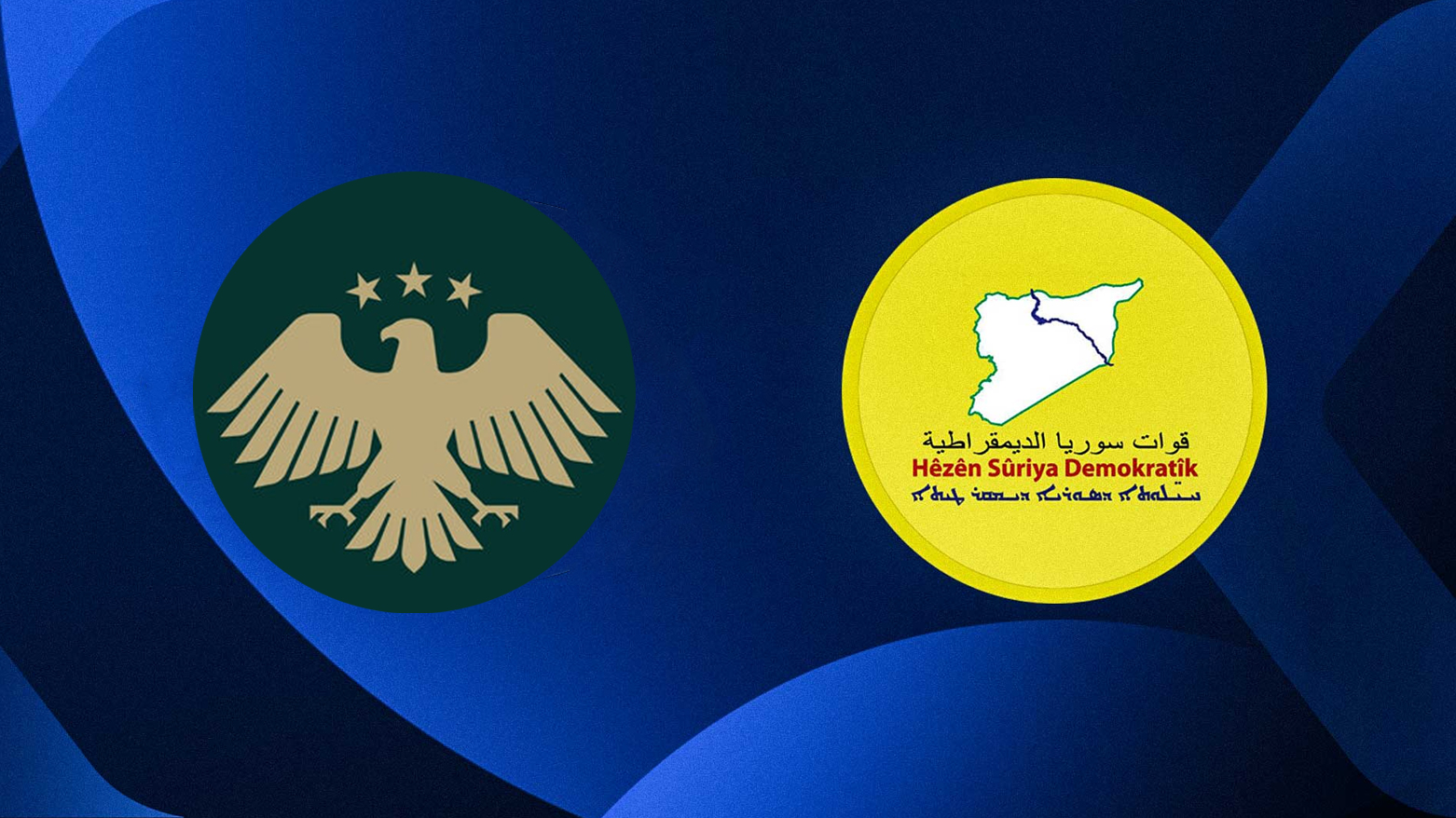Key Outcomes of Damascus-SDF Talks Reached National Ceasefire and Path to Political Integration
Damascus and SDF officials agreed on key points including SDF integration into Syria's army, nationwide ceasefire, constitutional reform, and refugee return during high-level talks.

ERBIL (Kurdistan24) - In a statement released following the high-level meeting between representatives of Democratic Autonomous Administration of North and East Syria (DAANES) and the Syrian Interim Government, the North and East Syria’s negotiation delegation confirmed that the meeting revolved around four principal points — the integration of the Syrian Democratic Forces (SDF) into the national army, the establishment of a total ceasefire across North and East Syria and Aleppo, constitutional reform, and the return of displaced persons — alongside commitments to combat terrorism and reinforce stability.
While no official paper was signed, the delegation described the dialogue as a “constructive step forward” in shaping a shared national vision. “The principle of integrating the SDF and internal security forces was discussed,” the statement read. “This oral understanding could lead to the creation of a structured and efficient army serving the protection of all Syrians.”
The delegation also emphasized that an immediate and total ceasefire across North and East Syria and Aleppo had been discussed, underlining the importance of restoring peace and security nationwide. “All Syrians must live in a secure country,” the statement noted.
A key highlight of the meeting was the discussion of constitutional amendments, which the NES delegation described as essential to building an inclusive political framework. “The constitution of Syria will be modified,” the statement declared. “This point is truly important, as a country’s constitution must represent all its populations and protect each individual — unity in diversity.”
The talks further covered the return of displaced persons and the fight against terrorism, both identified as crucial components in securing lasting peace and stability across Syria’s war-torn territories.
The NES expressed gratitude to France’s Ministry of Foreign Affairs, U.S. CENTCOM, and the U.S. Ambassador to the Republic of Türkiye and Special Envoy for Syria, for their “essential support” in facilitating this dialogue and contributing to the broader diplomatic efforts among all parties involved.
US Special Envoy to Syria Tom Barak stated in an exclusive interview with Al Arabiya English that the Syrian government and the Syrian Democratic Forces (SDF) have reached a comprehensive ceasefire agreement and that the situation in Syria is improving. He added that the Syrian government and the SDF are called upon to make mutually satisfactory decisions.
Barak explained: "We held constructive meetings between the two parties, and we emphasized to President Ahmed al-Sharaa and Commander Mazloum Abdi the need to adhere to the implementation of the March 10 agreement."
Al-Sharaa's meeting with the US Special Envoy, according to the Syrian Arab News Agency (SANA), was attended by Commander of US Central Command Brad Cooper, Syrian Foreign Minister Asaad al-Sheibani, Defense Minister Murhaf Abu Qasra, and the head of the General Intelligence Service Hussein al-Salama.
The Damascus talks coincided with politically charged remarks in Ankara by Devlet Bahçeli, leader of Turkey’s Nationalist Movement Party (MHP), who urged PKK’s founder Abdullah Ocalan, to issue a new and direct appeal to the Syrian Democratic Forces (SDF) to disarm.
Addressing parliament during his party’s first group meeting of the legislative year, Bahçeli proposed that if necessary, members of Turkey’s National Solidarity, Brotherhood, and Democracy Commission should visit İmralı to “receive messages firsthand.” He reaffirmed his support for the February 27 İmralı declaration, urging it to be “updated and expanded” to reflect recent regional developments.
The MHP leader also called on the SDF to comply with the March 10 Damascus Agreement, which he described as “a vital step for ensuring Syria’s democratic stability and a unified political mechanism.” Bahçeli further lamented the exclusion of Raqqa, Hasakah, and Suwayda from Syria’s latest People’s Assembly elections, asserting that such omissions contradicted the spirit of the March 10 accord.
Meanwhile, Syrian Foreign Minister Asaad al-Shibani is expected to visit Turkey on Wednesday, October 8, where he will meet with Turkish Foreign Minister Hakan Fidan in Ankara. According to Turkey’s Ministry of Foreign Affairs, the meeting will address bilateral relations and ongoing developments in Syria.
The timing of al-Shibani’s visit is notable, coming just a day after the conclusion of the Damascus talks and amid escalating regional discourse over Syria’s constitutional future, Kurdish integration, and ongoing ceasefire negotiations.
The United States continues to serve as a key mediator in Syrian affairs, sustaining the March 10 framework and promoting direct communication between Kurdish-led forces and Syrian institutions. The Trump administration has framed its Syrian policy around three core objectives: curbing extremism, preserving Kurdish partnerships, and supporting inclusive political processes that safeguard Syria’s sovereignty.
Analysts suggest that the renewed dialogue in Damascus and Bahçeli’s remarks in Ankara collectively signal an emerging realignment in regional strategy, as both Turkish and Syrian authorities reassess the evolving Kurdish role within the post-Assad order.
Though the Damascus meeting ended without the signing of an official document, its focus on ceasefire, constitutional reform, and national integration represents a meaningful continuation of Syria’s fragile yet ongoing peace process — one in which the Kurdish-led NES remains an indispensable political and security partner shaping the country’s future.